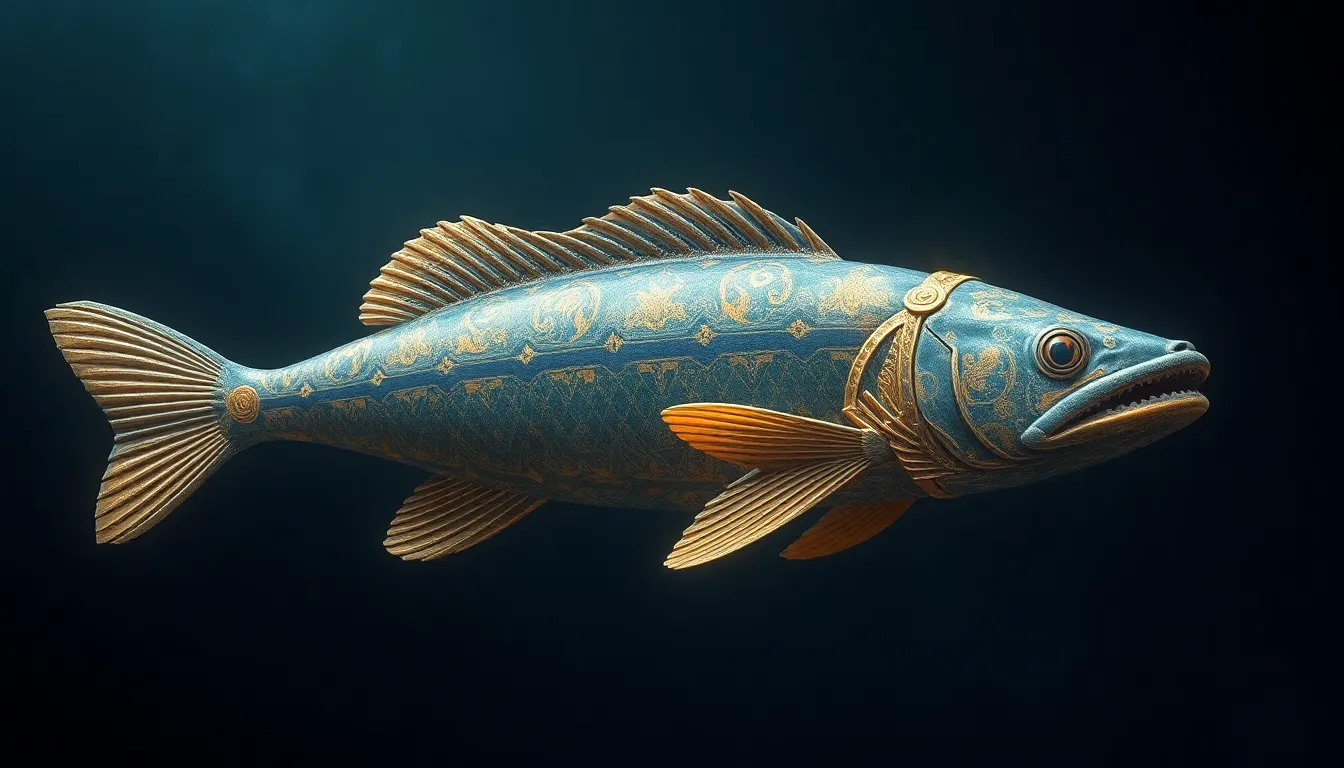The Mythical Significance of the Nile’s Fish
I. Introduction
The Nile River, often referred to as the lifeblood of Egypt, is not only crucial for its ecological diversity but also for its profound cultural and mythical significance in ancient Egyptian civilization. Among the myriad of creatures that thrived in its waters, fish played a vital role, representing not just sustenance but also deep-seated spiritual themes and beliefs.
II. Historical Context of the Nile River
The Nile has been central to the development of Egypt since prehistoric times. Its annual flooding deposited nutrient-rich silt along its banks, allowing agriculture to flourish. This ecological bounty transformed the region into one of the world’s earliest and most advanced civilizations.
- The river served as a major transportation route, facilitating trade and communication.
- Communities developed along its banks, leading to the rise of cities and eventually a centralized state.
III. The Role of Fish in Egyptian Mythology
In ancient Egyptian mythology, fish were not merely a food source; they were imbued with spiritual significance. Several deities were associated with fish, reflecting their importance in both creation myths and views of the afterlife.
- Hathor: Often depicted with fish or as a fish goddess, representing fertility and motherhood.
- Osiris: Associated with regeneration and the afterlife, Osiris was sometimes linked to aquatic life, symbolizing rebirth.
Fish also featured in various creation myths, where they were seen as primordial beings that emerged from the waters, an embodiment of life itself.
IV. Fish as Symbols of Fertility and Abundance
Fish represented fertility within the context of ancient Egyptian agrarian society. The abundance of fish in the Nile was a reflection of the overall richness of the land, symbolizing prosperity and the cyclical nature of life.
- Fish were seen as a sign of a bountiful harvest, often paralleling the agricultural cycles dictated by the Nile’s floods.
- The fertility of both the river and the land was crucial for sustaining the population, linking fish directly to the health of society.
V. Rituals and Offerings Involving Fish
Fish held a prominent place in various religious ceremonies and rituals, often used as offerings to the gods. These practices underscored the importance of fish in spiritual life.
- Fish were commonly offered during festivals celebrating fertility and the inundation of the Nile.
- Archaeological evidence, including fish remains found in tombs and temples, indicates that offerings were made to ensure an abundance of resources in the afterlife.
VI. The Influence of Fish on Art and Literature
Fish have also left an indelible mark on ancient Egyptian art and literature. Their depiction in various forms of art reflects their significance in the culture.
- Fish are often portrayed in murals, pottery, and amulets, showcasing their symbolic and aesthetic value.
- Hieroglyphics frequently reference fish, indicating their importance in both everyday life and spiritual contexts.
This artistic representation contributed to the mythological narratives surrounding fish, reinforcing their cultural significance.
VII. The Modern Legacy of Nile Fish Myths
Ancient beliefs about fish continue to influence contemporary Egyptian culture. The myths and symbols associated with Nile fish have been woven into the fabric of modern folklore and storytelling.
- Many traditional stories and proverbs are rooted in the ancient significance of fish, reflecting their continued relevance.
- Fish still play a crucial role in Egyptian cuisine and daily life, echoing their historical importance.
This enduring legacy highlights how ancient mythologies adapt and persist through generations, maintaining a connection to Egypt’s rich heritage.
VIII. Conclusion
The mythical significance of the Nile’s fish is a testament to the intricate relationship between the environment and ancient Egyptian culture. From symbolizing fertility and abundance to serving as vital offerings in religious practices, fish were deeply embedded in the spiritual and daily lives of the Egyptians.
Understanding these myths offers valuable insights into the beliefs and values of one of history’s most fascinating civilizations, emphasizing the importance of the Nile and its fish in shaping Egyptian heritage.




